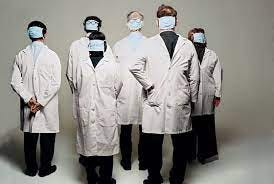There was a time when patients knew their doctor, but knew little about their medication until their physician chose it, prescribed it and explained its purpose.
Today, in many cases, it’s the other way around. Doctors come and go and many patients have stronger relationships with their prescription medications than with their prescribers.
It is common to have patients request medications they have researched online or seen advertised on TV, before an agreement even on the diagnosis has been made.
“Ask your doctor if Superpill™ is right for you”, goes the slogan, and that is literally how the subject gets broached sometimes. That is also the way some patients approach diagnosis; instead of describing their symptoms and letting the doctor choose the best diagnostic test and the best treatment, more patients today come with a specific test and a specific treatment already in mind, but without the benefit of considering the differential diagnosis.
How did things get this way, what does it mean, and can we do anything about it?
Did we as doctors allow ourselves to be viewed as pawns in the big health care game being played out between the pharmaceutical and insurance companies, did we lose our personal relationships and our professional standing with our patients, or are we simply victims of an unstoppable tsunami of advertising and an information explosion brought on by the Internet?
Curiously, I am now starting to see more and more patients looking for my “take” on some of the new information, as the volume and diversity of opinions seems to increase exponentially in the media. Somehow, the tide is starting to turn, and patients are turning back to their trusted Family Doctors to help them sort through the massive amounts of information available to them.
I think the backlash is partly fueled by people’s reactions to the many recent withdrawals of former blockbuster drugs that turned out to be medical lemons.
I also think that we, as a society, may be starting, at least to some degree, to mature in our relationship to all this new information. Information has no value without knowledge, and knowledge is not the same as wisdom.
Going back to how doctors are trained, the information is out there for anyone and everyone to read, medical school gives you the knowledge how the information can be applied, and residency and practice gives you the experience and wisdom to actually take new information and apply it to real situations and real people.
So, while many of my patients are still enamored with the latest and greatest, I see a growing need for doctors like me, the somewhat older, wiser Country Doctor type, to help patients sort through the hype and help them find the real story behind today’s wonder drugs and medical news.
As the information explosion continues, the need for clinical wisdom grows. Wisdom cannot only be learned, it must also be earned.



